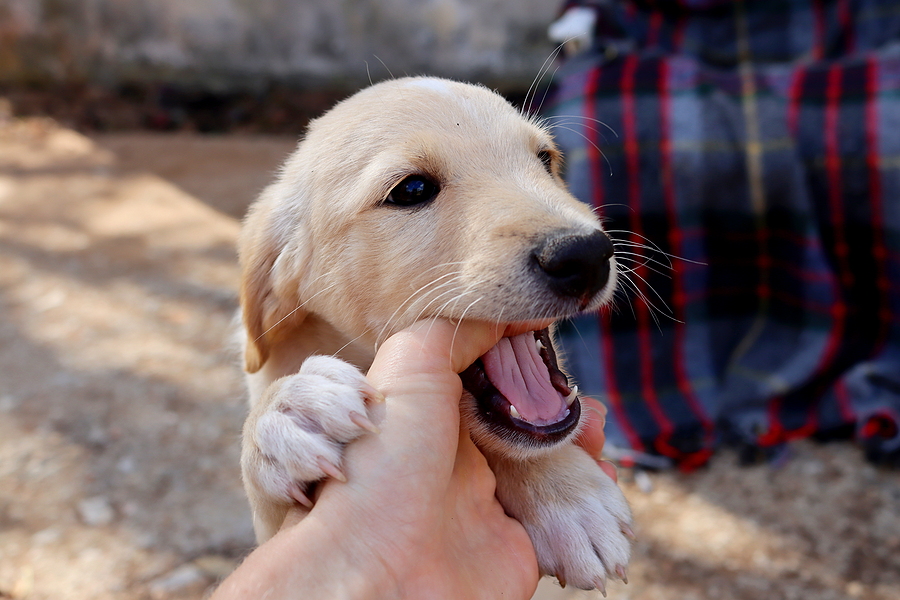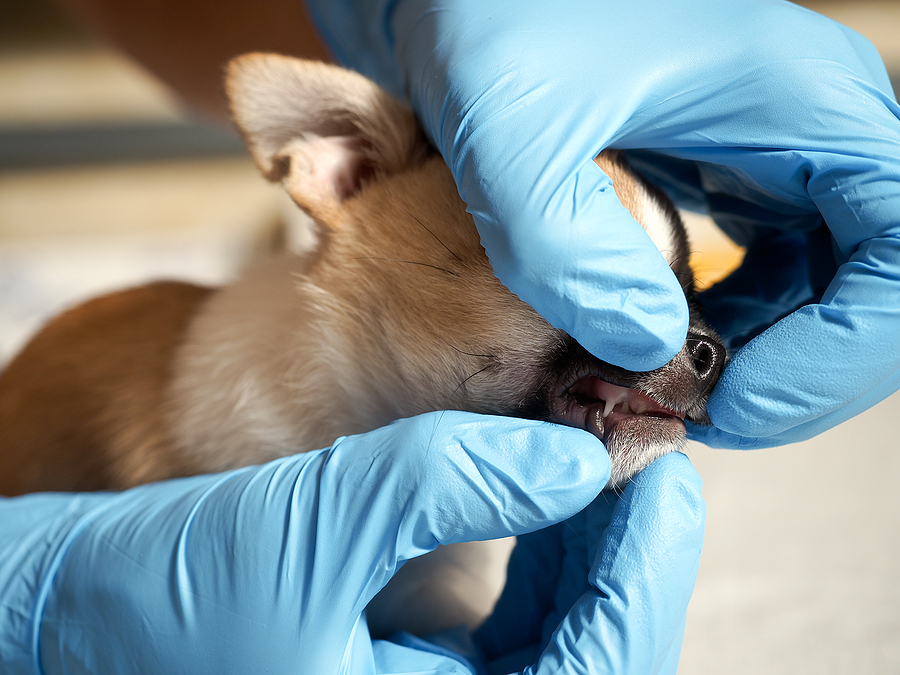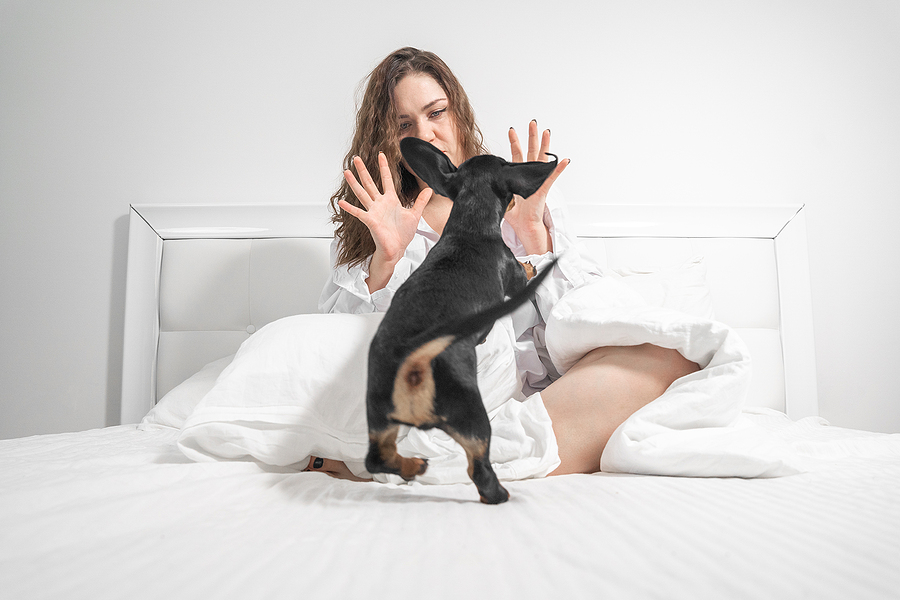One of the most common questions people ask their dog behaviorist is how to stop their puppy from biting or nipping. Puppies need to learn where to draw the line between play and aggression, and it’s the trainer’s responsibility to draw that line for them.
The Training Mindset
It’s difficult to be a strict puppy guardian when they look so cute, but you owe it to them to guide them correctly. Some first-time puppy owners let negative behavior go uncorrected because they think the pup is just too precious and can do no harm. This is the difference between being a nice puppy owner and a compassionate one. Nice is letting your pup always get its way. Compassionate is being a vigilant guardian who stays on top of negative behavior to raise a well-adjusted and happy dog.

Control the Situation
The first thing a dog behaviorist will often ask is “Do you have a leash on your puppy?” Too many puppy owners think the leash is only for walks. In reality, it is an essential tool for preventing puppy biting.
When a puppy bites, you need to correct the behavior immediately. If you find yourself chasing down your puppy every time they nip, it becomes a game for them. Keeping your puppy leashed allows you to swiftly take action and calm them – immediately after nipping. There are special leashing techniques a trained dog behaviorist can teach owners to help them gain control effectively.
Elevation Matters
If you haven’t noticed, you and your puppy have a height difference. This is a valuable tool in dog training, it helps establish who is training who. If your puppy bites or nips, you need to keep them out of positions that encourage that behavior. When a dog sits on a couch or bed with you, their elevated position gives them a false sense of confidence that makes them more likely to bite. The same goes for when you bend down to their level to play. Puppies are also more likely to bite if they are in vulnerable positions like on their back. Keeping puppies out of these situations during training can reduce the frequency of the behavior.
“That” Time of Day
Have you ever noticed that your puppy always gets extra rambunctious at a certain time a day? You need to be prepared for this wild child part of the day. By calming down your pup during the ‘witching hour,’ you can avoid many negative behaviors in the short term and bad habits in the long term. Make sure unruly pups are leashed during this time and be extra attentive in case you need to make a correction. Exercising them right before this time of day can slow them down and encourage positive behavior.

Inspecting & Handling
Puppies bite more often while you inspect them and handle different parts of their body. For example, when you clip their nails, look in their mouth, or hold their paws. These actions are foreign to puppies and they need to be conditioned to react positively to them. A dog behaviorist will feed a dog treats while handling them in different ways to desensitize them to the action and associate it with positive reinforcement. Any time the puppy bites during this time, the behaviorist makes a correction and gives positive reinforcement once their behavior changes.
An Expert Dog Behaviorist
Properly raising a puppy is no simple feat, especially if you have a particularly fussy breed. There are many techniques to remember and they must be executed swiftly. Sometimes it’s best to get some help from a professional dog behaviorist. Beau’s K9 Academy is here to help you raise your biting puppy. If you want a dog behaviorist that can modify even the most extreme behaviors, contact us today.

